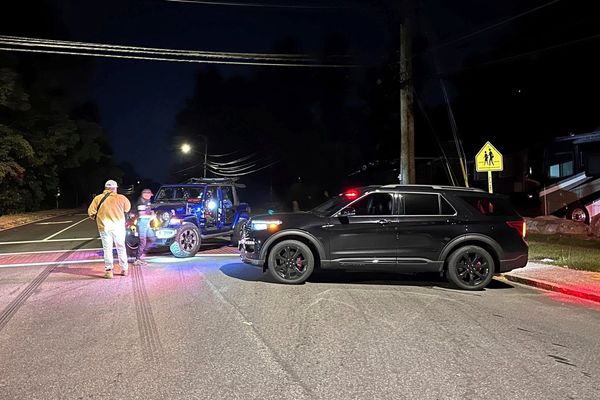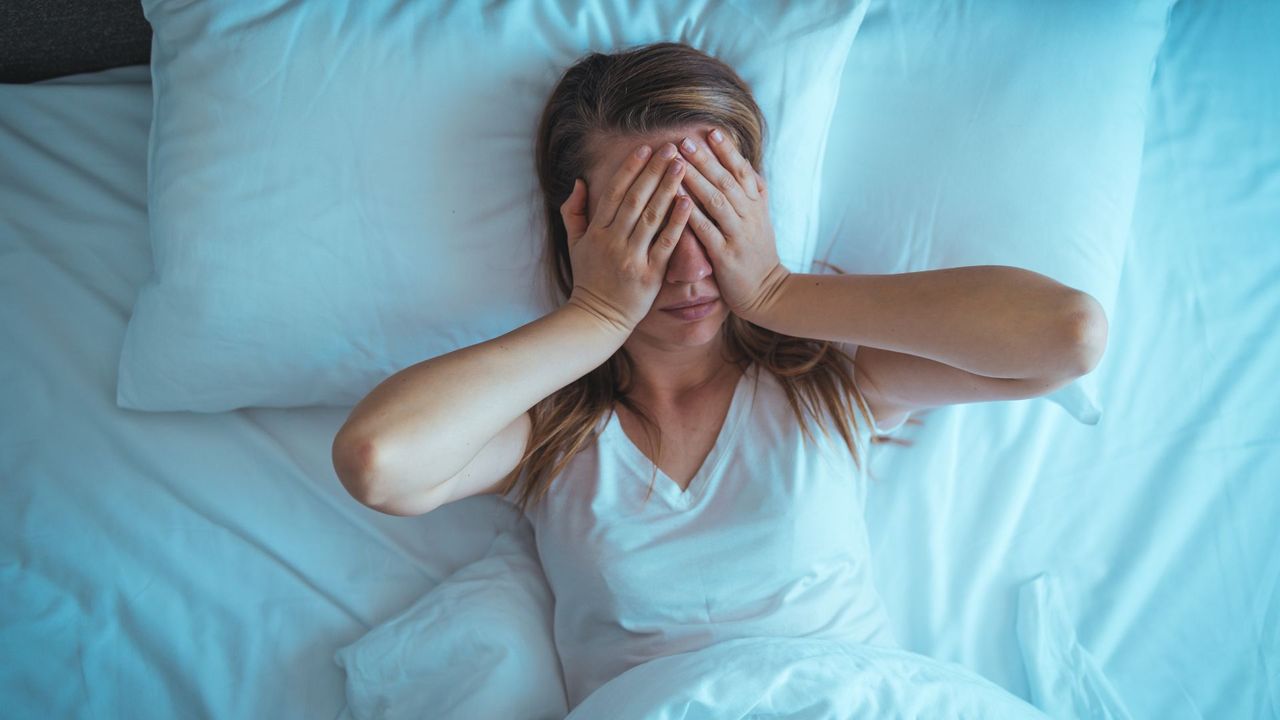
A common sleep disorder, obstructive sleep apnea (OSA) affects 1 billion people around the globe, and in the US, 9%- 17% of women 25%-30% of men. It's characterized by the upper airway narrowing or collapsing when throat muscles relax too much during sleep.
When these obstructions occur, breathing stops for anywhere between a few seconds to more than a minute, which is called an apnea. This causes oxygen levels to drop, which signals to our brain to wake us up so we can breathe. The result is disrupted sleep due to multiple awakenings caused by the disorder.
A new study looking at changes in severity of OSA over the course of the week has found that weekends showed a significant worsening of OSA, leading to the researchers to coin the phrase 'social apnea' to describe the phenomenon.
Here, we'll be exploring the study's findings and how 'social apnea' could be ruining your weekend sleep if you experience OSA. Plus, we're speaking to Dr. William Lu, Medical Director at Dreem Health, about this new research and for some expert-approved tips on how you can get the best sleep each and every weekend, whether OSA troubles you or not.
'Social apnea' — key findings
- Using sleep data from more than 70,000 people across the globe, researchers found that OSA was more severe on weekends
- Participants were 18% more likely to have moderate to severe OSA on weekends
- Sleeping in for 45 minutes or more on weekends also led to a 47% increase in risk of worse OSA
A new study has delved deeper into how obstructive sleep apnea (OSA) impacts people over the course of the entire week. The research, which was published recently in the American Journal of Respiratory and Critical Care Medicine, looked at sleep data of more than 70,000 people around the globe, all of whom had used an under-mattress sensor that is able to detect sleep apnea, among other sleep data.
The majority of participants were male (81% compared to 19% female), middle-aged (the average age was 53), and overweight.
The researchers say they found "a global increase in OSA severity on weekends, a phenomenon we have termed social apnea."
In statistical terms, they discovered participants had an 18% greater chance of moderate or severe OSA on Saturdays compared to Wednesdays. The "effect was greater in men vs. women and in participants younger than 60 years vs. older participants."
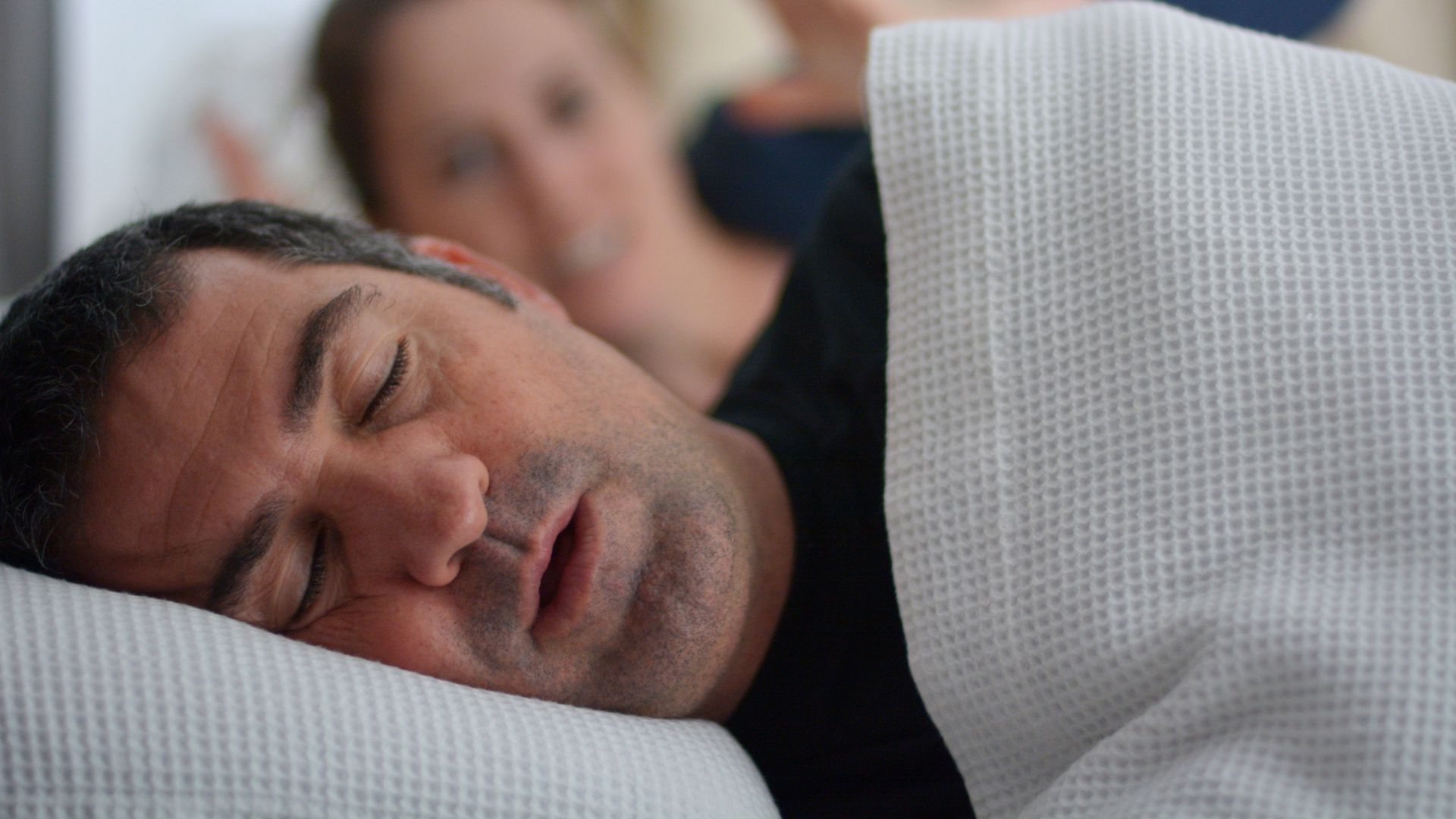
Lifestyle changes like sleeping in later on the weekends were also associated with more severe OSA, with participants who slept in for 45 minutes or longer having a 47% greater risk of having worse sleep apnea. Meanwhile, social jet lag (a mismatch between sleeping patterns during the week compared to those on weekends) of one hour or more came with a 38% increased risk of worse OSA.
Lead author of the paper, Research Fellow Dr. Lucia Pinilla from Flinders Health and Medical Research (FHMRI) Sleep Health said that, “most clinical diagnostic testing is done on a single night, typically a weeknight, missing the weekend effect we’re now calling social apnea.”
While the researchers acknowledged that the study did not have access to information on the lifestyles (including diet, exercise, alcohol and caffeine consumption etc.) of the participants or information such as their work schedules or CPAP treatment, they suggested that lifestyle choices, such as increased alcohol and smoking on weekends, and irregular sleep patterns may responsible for more severe OSA on weekends.
“We don’t yet know exactly why, but alcohol use, lighter sleep, and less consistent use of OSA therapies likely play a role," said Director of FHMRI Sleep Health and senior author on the paper, Professor Danny Eckert.
"Social apnea highlights how lifestyle changes outside of weekday routines can disrupt sleep," Dr. Lu, who did not work on the study, says. "Social habits on weekends may be silently making sleep apnea worse," he adds.
How can weekend habits can impact sleep apnea and disrupt our sleep?
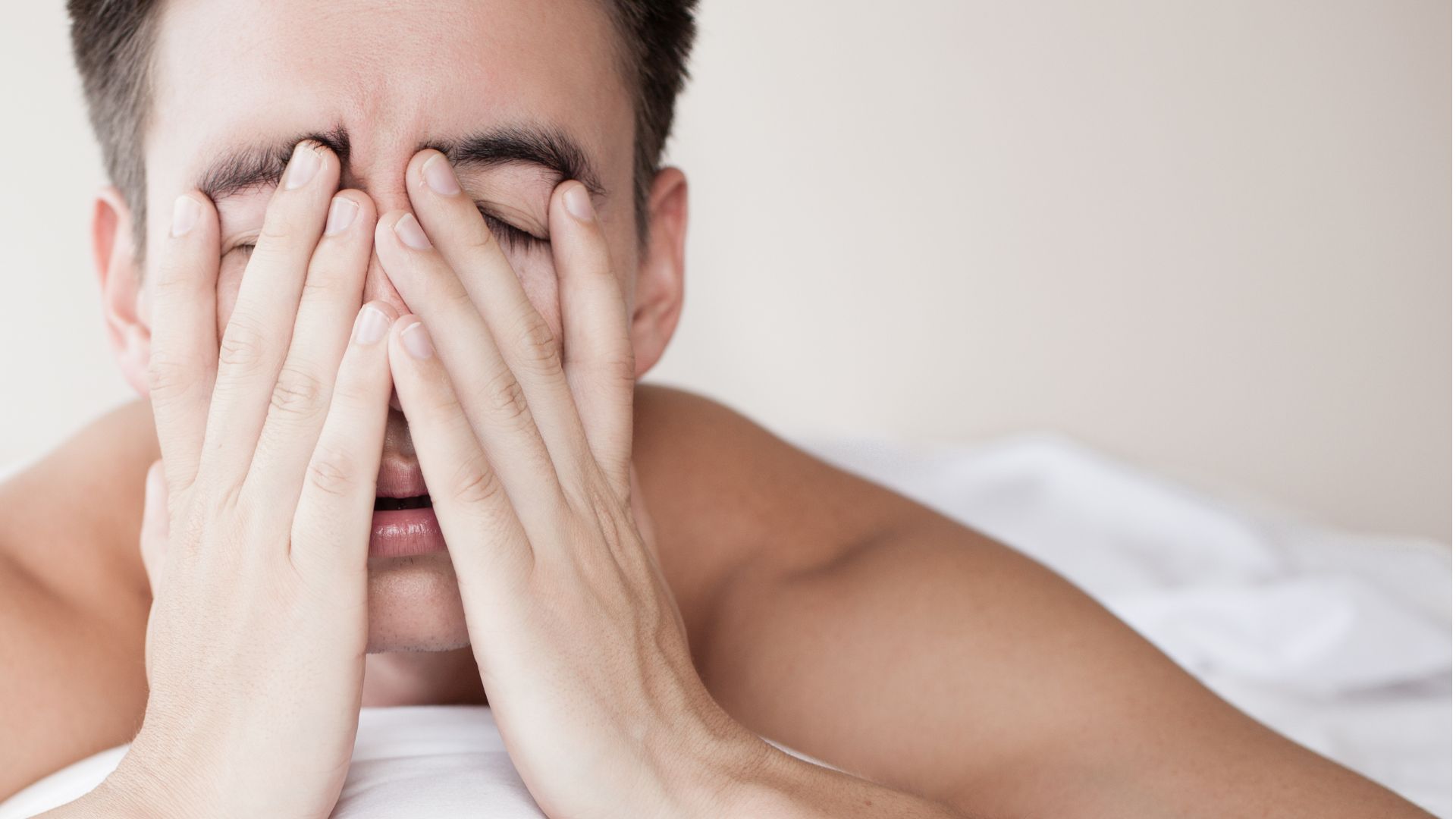
The researchers behind the new study suggest that lifestyle habits and sleep changes may be responsible for the worsening of obstructive sleep apnea they saw on weekends.
Dr. Lu explains how certain habits (which we may adopt more on weekends) can negatively impact OSA.
"Factors such as alcohol use, later bedtimes, heavier meals, smoking, or even falling asleep in different positions can all increase the likelihood of airway obstruction and disrupted sleep," he says.
However, "weekend habits can affect sleep in several ways beyond worsening sleep apnea," Dr. Lu explains.
"Staying up late or sleeping in can shift the body’s internal clock, making it harder to wake up and feel alert during the week. Alcohol, caffeine, late-night meals, and screen time can fragment sleep, reduce deep restorative stages, and delay falling asleep," he says.
Dr. Lu tells us that these disruptions can leave people feeling groggy, unfocused, and irritable, and they can also impact mood, cognitive performance, and even our metabolism.
"Inconsistent weekend routines make it difficult to maintain healthy, restorative sleep overall," he explains.
So, we're here to help with some advice on how you can prevent weekends from ruining your overall sleep.
How to avoid weekends derailing your sleep
Whether you experience OSA or not, these expert-led tips should help you maintain great sleep all week long.
1. Stick to a regular sleep routine
For those with OSA, study author Professor Eckert recommended trying "to keep the same sleep schedule throughout the week and weekend, ensuring that you get the recommended 7-9 hours of sleep a night."
He explained that going to bed when tiredness hits, sticking to the same wake up time and maintaining prescribed OSA therapy throughout the weekend, “will help ensure you frequently get enough restorative sleep which can help combat the weekend spike in OSA.”
Dr. Lu also recommends those with OSA, and those who don't experience it, both keep to a consistent sleep schedule, explaining that doing so, "maintains your circadian rhythm and helps the body anticipate and obtain restorative sleep."
2. Limit alcohol and late-night indulgences
Yes, it's going to be trickier on weekends when there's more temptation to stay up later, socialising and drinking, and but limiting your alcohol intake is important if you want to avoid "social apnea."
"Alcohol can increase soft tissue relaxation during sleep which can worsen sleep apnea," explains Dr. Lu.
Regardless of whether you have OSA or not, alcohol is still going to impact your sleep for the worse.
"Alcohol also changes your sleep architecture and reduces deep sleep which is a critical restorative stage," says Dr. Lu.
As well as decreasing REM sleep in the first part of the night, once you've metabolized the alcohol you consumed earlier in the night, your body then spends longer either awake or, in the lightest stage of sleep, which means, as Dr. Lu points out, you're likely to get less of other all-important sleep stages.
And, eating later on weekends is a 'no no' too. "Eating heavy meals right before bed can trigger acid reflux which can be interrupt sleep," says Dr. Lu.
3. Minimize screen exposure before bed
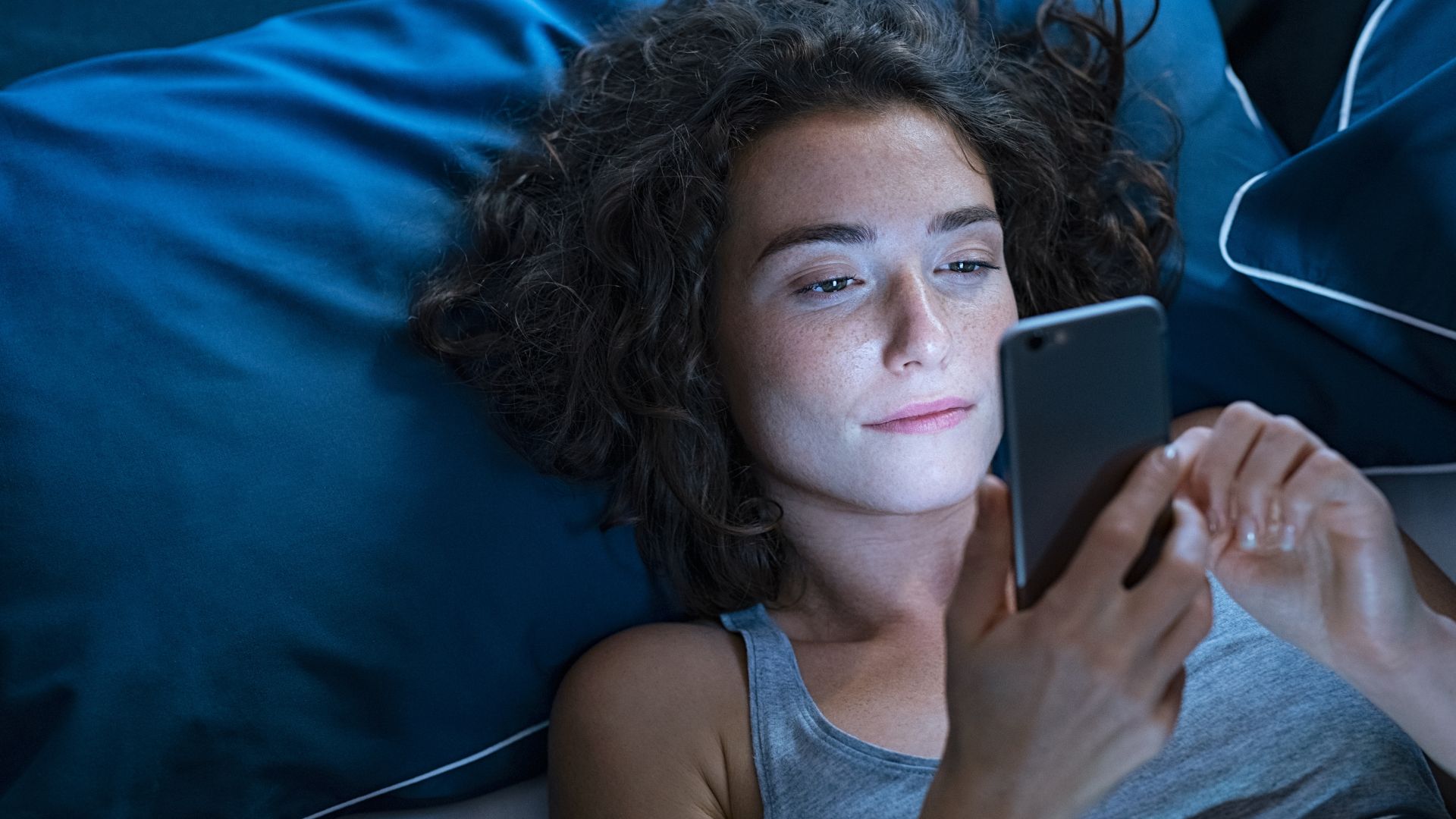
The weekends might seem like the ideal time to watch a movie on your laptop in bed, or scroll your phone for hours at night. After all, you don't need to get up for work in the morning, right?
Wrong. Dr. Lu says that even on weekends, it's important to minimize your exposure to screens ahead of going to sleep.
This is because doing so "reduces melatonin suppression, making it easier to fall asleep," he explains.
"For OSA patients, better sleep onset can improve overall sleep architecture and reduce nighttime awakenings," he adds.
4. Maintain a sleep-friendly environment
Keeping your bedroom as quiet and calm on the weekend as it (hopefully!) is during the week is going to help maintain good sleep.
"Stable, low-stimulation environments improve sleep continuity, benefiting everyone," says Dr. Lu, adding that, "for OSA patients, a cool room may reduce airway inflammation and congestion."
That means sticking to the ideal room temperature for good sleep (which is 65 to 70°F, or 18 to 21°C, according to research), reducing light pollution with blackout curtains or a sleep mask (particularly if other members of your household are up late and keeping the lights on) and not letting your bedroom get cluttered (i.e. no avoiding tidying up because its the weekend!).
Another way to make sure your bedroom is a sanctuary of relaxation all week long is to ensure you're sleeping on the best mattress for your needs (you may want to explore the best cooling mattresses if you sleep particularly hot) and resting your head on the best pillow for your sleep style.
5. Stay active, but not right before bed
You've worked hard at the gym all week, so it seems fair to take the weekend off and kick back. But remaining active, can help keep your sleep on track.
"Daytime exercise promotes deeper, restorative sleep," says Dr. Lu.
Research has shown that exercise can reduce the severity of OSA, and one study found that a 20 minute walk can reduce the risk of developing sleep apnea by 10%.
But keep timings in mind, because, "evening activity too close to bedtime can increase alertness and make it harder to fall asleep," he adds.
Research suggests finishing up your training one hour to 90 minutes before bedtime at least to avoid a negative impact on your sleep, while experts have advised that it's best to end exercise 3 to 4 hours before heading to bed and another study showed that 4 hours is the ideal cut off point.
6. Keep caffeine earlier in the day
"Caffeine can delay sleep onset and reduce sleep quality, affecting both those with and without OSA," says Dr. Lu, who advises keeping your caffeine intake to earlier in the day on the weekend.
Since caffeine can stay in our system for 5-6 hours (and sometimes as long as 12 hours) after we consume it, it's best to switch late afternoon coffee catch-ups to the mornings on Saturdays and Sundays.
And while a soda might seem like a good alternative to alcohol at night, be mindful of the caffeine content if you want to drop off easily.



